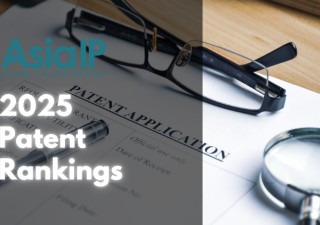Australia introduces patent box for medical, biotech companies
10 June 2021

Australia is set to implement a patent box scheme which was introduced in its Federal Government’s 2021 – 2022 budget announced on May 11, 2021.
The proposed patent box lowers the tax rate on profits generated by Australian medical and biotechnology companies from patented inventions that were researched and developed in Australia. From the previous corporate tax rates of 30 percent for large enterprises and 25 percent for small and medium-sized firms, the patent box puts the effective concessional corporate tax rate at 17 percent. Its aim is to encourage Australian companies in the medical and biotech sectors to engage in research, innovation, manufacturing and commercialization right on local soil instead of transferring their intellectual property to offshore facilities.

“The announcement of a patent box for the Australian biotechnology and medical sectors has been warmly welcomed by the industry,” said Karen Heilbronn Lee, an associate at Shelston IP in Sydney. “The patent box, should it be continued for a suitable period of time, would likely contribute toward increasing sovereign manufacturing capacity in the medical technology and biotechnology sectors, potentially including mRNA vaccines, which have become central to the fight against Covid-19.”
“The global pandemic has served to remind Australians of our excellent research capabilities in the medical and biotech fields, but also that we fall well short in our commercialization and manufacturing capabilities,” said Simon Potter, a principal at Spruson & Ferguson in Sydney.
Their firm believes that the patent box, if refined and implemented properly, will be a good incentive for Australia’s medical and biotech industry players.
“Patent filing numbers are generally understood as a fundamentally good indicator of innovation and economic activity. With provisional patent application numbers in Australia falling by an average of 1 percent per annum over the last 10 years and the reduced use of our patent system by Australian applicants, we are pleased to see the Government taking positive and proactive steps to reverse these trends,” Potter said.
The patent box will take effect on July 1, 2022. Patents which were granted and applied for after the announcement of the Federal Government budget on May 11 are eligible under the scheme.

“As several years typically elapse between patent filing and patent grant, and many products in these sectors require some years of development prior to achieving commercial success,” said Lee, “it appears that it could be some time before the full benefits of the patent box regime can be realized.”
Nevertheless, Lee said their firm keenly awaits the release of the details pertaining to the regime.
Aside from medicine and biotech, the Australian government is also eyeing the Inclusion of the clean energy sector to the patent box scheme.
Renewable energy, said Potter, is obviously a rapidly growing and key technology area going forward.
“Preferably this would be a component of a broader package of incentives for clean tech companies, including things like government funding/grants, winding back fossil fuel subsidies, incentivizing low emissions and other potential tax incentives,” he said.
Overall, their firm is optimistic of the future with the implementation of the patent box.
“We are optimistic that the implementation of the proposed patent box regime will be successful and that this policy will help make Australia a more attractive location for innovation and manufacturing in the medical and biotechnology sectors,” said Potter, “which in turn will provide a real benefit to the Australian economy.”
Over 20 countries already have patent boxes, including China, the UK, France, Netherlands, Portugal and Switzerland.
Espie Angelica A. de Leon






